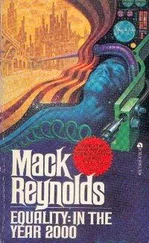1 ...8 9 10 12 13 14 ...36 “The supply of volunteers is always expected to fully equal the demand,” replied Dr. Leete. “It is the business of the administration to see that this is the case. The rate of volunteering for each trade is closely watched. If there be a noticeably greater excess of volunteers over men needed in any trade, it is inferred that the trade offers greater attractions than others. On the other hand, if the number of volunteers for a trade tends to drop below the demand, it is inferred that it is thought more arduous. It is the business of the administration to seek constantly to equalize the attractions of the trades, so far as the conditions of labor in them are concerned, so that all trades shall be equally attractive to persons having natural tastes for them. This is done by making the hours of labor in different trades to differ according to their arduousness. The lighter trades, prosecuted under the most agreeable circumstances, have in this way the longest hours, while an arduous trade, such as mining, has very short hours. There is no theory, no a priori rule, by which the respective attractiveness of industries is determined. The administration, in taking burdens off one class of workers and adding them to other classes, simply follows the fluctuations of opinion among the workers themselves as indicated by the rate of volunteering. The principle is that no man’s work ought to be, on the whole, harder for him than any other man’s for him, the workers themselves to be the judges. There are no limits to the application of this rule. If any particular occupation is in itself so arduous or so oppressive that, in order to induce volunteers, the day’s work in it had to be reduced to ten minutes, it would be done. If, even then, no man was willing to do it, it would remain undone. But of course, in point of fact, a moderate reduction in the hours of labor, or addition of other privileges, suffices to secure all needed volunteers for any occupation necessary to men. If, indeed, the unavoidable difficulties and dangers of such a necessary pursuit were so great that no inducement of compensating advantages would overcome men’s repugnance to it, the administration would only need to take it out of the common order of occupations by declaring it ‘extra hazardous,’ and those who pursued it especially worthy of the national gratitude, to be overrun with volunteers. Our young men are very greedy of honor, and do not let slip such opportunities. Of course you will see that dependence on the purely voluntary choice of avocations involves the abolition in all of anything like unhygienic conditions or special peril to life and limb. Health and safety are conditions common to all industries. The nation does not maim and slaughter its workmen by thousands, as did the private capitalists and corporations of your day.”
“When there are more who want to enter a particular trade than there is room for, how do you decide between the applicants?” I inquired.
“Preference is given to those who have acquired the most knowledge of the trade they wish to follow. No man, however, who through successive years remains persistent in his desire to show what he can do at any particular trade, is in the end denied an opportunity. Meanwhile, if a man cannot at first win entrance into the business he prefers, he has usually one or more alternative preferences, pursuits for which he has some degree of aptitude, although not the highest. Every one, indeed, is expected to study his aptitudes so as to have not only a first choice as to occupation, but a second or third, so that if, either at the outset of his career or subsequently, owing to the progress of invention or changes in demand, he is unable to follow his first vocation, he can still find reasonably congenial employment. This principle of secondary choices as to occupation is quite important in our system. I should add, in reference to the counter-possibility of some sudden failure of volunteers in a particular trade, or some sudden necessity of an increased force, that the administration, while depending on the voluntary system for filling up the trades as a rule, holds always in reserve the power to call for special volunteers, or draft any force needed from any quarter. Generally, however, all needs of this sort can be met by details from the class of unskilled or common laborers.”
“How is this class of common laborers recruited?” I asked. “Surely nobody voluntarily enters that.”
“It is the grade to which all new recruits belong for the first three years of their service. It is not till after this period, during which he is assignable to any work at the discretion of his superiors, that the young man is allowed to elect a special avocation. These three years of stringent discipline none are exempt from, and very glad our young men are to pass from this severe school into the comparative liberty of the trades. If a man were so stupid as to have no choice as to occupation, he would simply remain a common laborer; but such cases, as you may suppose, are not common.”
“Having once elected and entered on a trade or occupation,” I remarked, “I suppose he has to stick to it the rest of his life.”
“Not necessarily,” replied Dr. Leete; “while frequent and merely capricious changes of occupation are not encouraged or even permitted, every worker is allowed, of course, under certain regulations and in accordance with the exigencies of the service, to volunteer for another industry which he thinks would suit him better than his first choice. In this case his application is received just as if he were volunteering for the first time, and on the same terms. Not only this, but a worker may likewise, under suitable regulations and not too frequently, obtain a transfer to an establishment of the same industry in another part of the country which for any reason he may prefer. Under your system a discontented man could indeed leave his work at will, but he left his means of support at the same time, and took his chances as to future livelihood. We find that the number of men who wish to abandon an accustomed occupation for a new one, and old friends and associations for strange ones, is small. It is only the poorer sort of workmen who desire to change even as frequently as our regulations permit. Of course transfers or discharges, when health demands them, are always given.”
“As an industrial system, I should think this might be extremely efficient,” I said, “but I don’t see that it makes any provision for the professional classes, the men who serve the nation with brains instead of hands. Of course you can’t get along without the brain-workers. How, then, are they selected from those who are to serve as farmers and mechanics? That must require a very delicate sort of sifting process, I should say.”
“So it does,” replied Dr. Leete; “the most delicate possible test is needed here, and so we leave the question whether a man shall be a brain or hand worker entirely to him to settle. At the end of the term of three years as a common laborer, which every man must serve, it is for him to choose, in accordance to his natural tastes, whether he will fit himself for an art or profession, or be a farmer or mechanic. If he feels that he can do better work with his brains than his muscles, he finds every facility provided for testing the reality of his supposed bent, of cultivating it, and if fit of pursuing it as his avocation. The schools of technology, of medicine, of art, of music, of histrionics, and of higher liberal learning are always open to aspirants without condition.”
“Are not the schools flooded with young men whose only motive is to avoid work?”
Dr. Leete smiled a little grimly.
“No one is at all likely to enter the professional schools for the purpose of avoiding work, I assure you,” he said. “They are intended for those with special aptitude for the branches they teach, and any one without it would find it easier to do double hours at his trade than try to keep up with the classes. Of course many honestly mistake their vocation, and, finding themselves unequal to the requirements of the schools, drop out and return to the industrial service; no discredit attaches to such persons, for the public policy is to encourage all to develop suspected talents which only actual tests can prove the reality of. The professional and scientific schools of your day depended on the patronage of their pupils for support, and the practice appears to have been common of giving diplomas to unfit persons, who afterwards found their way into the professions. Our schools are national institutions, and to have passed their tests is a proof of special abilities not to be questioned.
Читать дальше










